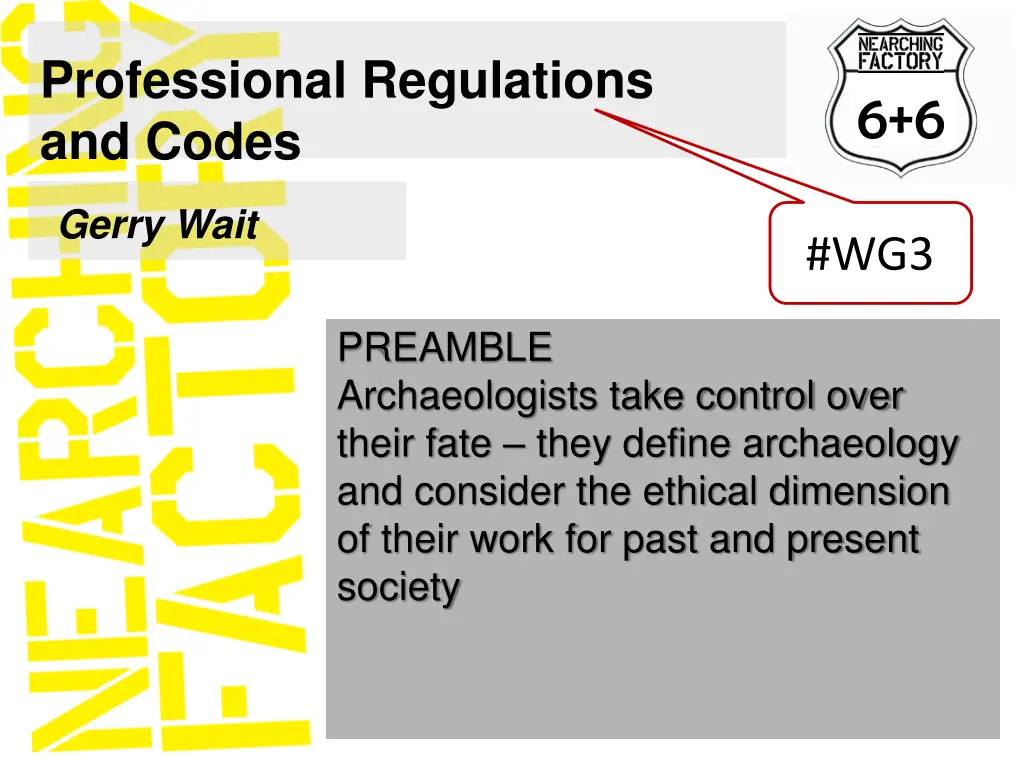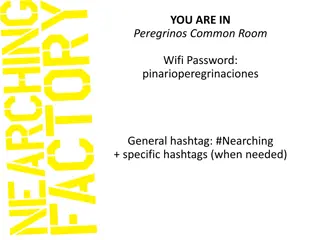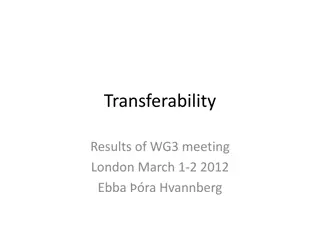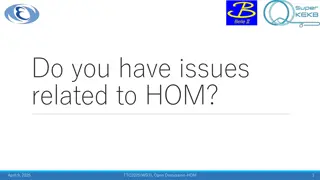
Professional Regulations and Codes in Archaeology
Emphasizing the importance of accountability and ethics in archaeology, this content discusses the need for a European-level professional association, incorporation of quality control, defining archaeology as a profession without divisions, and considering the public benefit of archaeological work. It delves into key functions, the distinction between beneficiaries and clients, implementation of professionalization, coordination with other organizations, and the significance of skilled archaeologists for maintaining quality in the field.
Download Presentation

Please find below an Image/Link to download the presentation.
The content on the website is provided AS IS for your information and personal use only. It may not be sold, licensed, or shared on other websites without obtaining consent from the author. If you encounter any issues during the download, it is possible that the publisher has removed the file from their server.
You are allowed to download the files provided on this website for personal or commercial use, subject to the condition that they are used lawfully. All files are the property of their respective owners.
The content on the website is provided AS IS for your information and personal use only. It may not be sold, licensed, or shared on other websites without obtaining consent from the author.
E N D
Presentation Transcript
Professional Regulations and Codes 6+6 Gerry Wait #WG3 PREAMBLE Archaeologists take control over their fate they define archaeology and consider the ethical dimension of their work for past and present society
1 Professional Regulations and Codes A European-level professional association is needed. #WG3 Accountability is essential in a professional association Therefore a Code of Ethics is needed and a process to investigate and act upon allegations of unprofessional behaviour Archaeology should be fully defined as a profession, with no division between public-private, academic-commercial, archaeological specialists of many kinds, etc.
Professional Regulations and Codes 2 Key functions #WG3 Quality Control As part of a professional association, we need to incorporate quality control in 1. Person / members archaeologists 2. Organisations or companies that do archaeology 3. Archaeological processes and 4. Archaeological products, services for which we need a recognized professional association.
3 Professional Regulations and Codes Archaeology - for the public benefit #WG3 Beneficiary versus Client who pays Archaeology serves many and different publics The developer (e.g. a state or government) is not the same as the ultimate beneficiary. Different interests he who pays may not be interested in archaeology
Professional Regulations and Codes 4 #WG3 Key point of implementation Professionalisation in action A professional association must focus on the agreements that establish how and to what standards archaeology must be done between a project proponent and the archaeologists and the state.
Professional Regulations and Codes 5 There are things that a professional association cannot deal with #WG3 Different fields of engagement need different roles / actors So there is also the need for coordination with other types of (inter-)national organizations - such as EAA e.g. for: Advocacy to governments Update of the Malta or Valletta Convention
Professional Regulations and Codes 6 Archaeologists employment conditions #WG3 Quality archaeology depends upon skilled people The agreements / contracts by which archaeological works are undertaken give us the place to require quality work, and require the archaeological organisations to provide appropriate pay and conditions to employees






